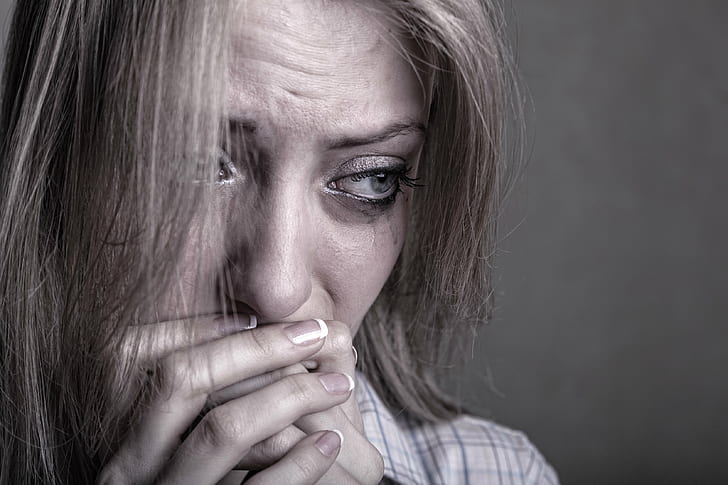Anxiety can affect people from all backgrounds but it may take different forms within the LGBTQ+ community. LGBTQ+ people face many unique challenges that can cause anxiety or mental health problems. This article explores the unique characteristics of anxiety within the LGBTQ+ community, and the factors that can contribute to it. The article also examines strategies and support systems that can be used to reduce anxiety.
Part 1: Understanding anxiety within the LGBTQ+ community
Anxiety Prevalence 1.
In the LGBTQ+ community, anxiety is common. Anxiety is often caused by discrimination, stigma and other challenges, such as coming out and navigating an unwelcoming society. Studies show that LGBTQ+ people suffer from anxiety treatment disorders at higher rates than other groups.
1.2 Unique Challenges
Discrimination: The LGBTQ+ Community faces discrimination, prejudice and microaggressions. Being marginalized is a source of anxiety, particularly social anxiety and minority stress.
Coming out can be stressful. Fear of rejection and negative reactions can cause chronic stress.
Internalized homophobia and transphobia can cause feelings of shame, anxiety, and self-loathing.
Intersectionality: LGBTQ+ individuals who are also part of marginalized groups, such as people with disabilities and people of color, may experience increased discrimination. This can lead to higher anxiety levels.
Stress on gender and sexual minorities
The minority stress theory explains the unique stressors LGBTQ+ individuals experience. The stress that LGBTQ+ people experience is due to discrimination, stigma and prejudice. Chronic exposure to minority stressors can lead to mental health issues, such as anxiety.
Part 2: Coping with Stress and Support Strategies
Cultivating resilience
Resilience is the ability to bounce back from adversity. LGBTQ+ people can build resilience by:
Support from friends, family, and LGBTQ+ individuals can be an important emotional resource in difficult times.
Mental Health Services: Counseling from LGBTQ+ affirmative healthcare providers can help you deal with anxiety or other challenges.
2.2 Education
Education of the Community – It is essential to educate the LGBTQ+ community about mental illness and anxiety. This can reduce stigma and encourage people seeking assistance.
Allies will benefit from a greater understanding of the mental health concerns facing LGBTQ+ individuals. Greater understanding can help to provide more effective support.
Safe Spaces
Creating Safe Environments: Establishing LGBTQ+-friendly spaces, where individuals can openly discuss their feelings, concerns, and experiences, can give a sense of belonging and safety.
Positive therapy
LGBTQ+ Affirmative Therapy: Mental health professionals who have specialized in LGBTQ+ affirmative therapy can provide culturally sensitive treatment. These therapists understand the unique challenges faced by LGBTQ+ individuals and are sensitive to their experiences.
Self-Care:
Self-Compassion is essential. Self-compassion is essential.
Meditation and mindfulness: Mindfulness techniques can help people manage anxiety symptoms and reduce rumination.
2.6 Advocacy and Activism
Advocacy Work. Advocacy and activism for LGBTQ+ can empower people and reduce discrimination.
Part 3: Seeking Professional Help
Therapy and Counseling
Group or individual counseling and therapy can be extremely helpful for addressing anxiety in the LGBTQ+ community. When seeking therapy, consider these factors:
LGBTQ+ Affirmative Therapists: These therapists have a specialization in LGBTQ+ issues. The therapists do not have to be informed or educated about the challenges.
Group Therapy Group therapy can be very beneficial, as it creates a community and encourages the sharing of personal experiences.
3.2 Medication
Certain medications are prescribed for anxiety symptoms. Combining medication with therapy and coping skills can help relieve anxiety symptoms.
3.3 Peer Support
Joining LGBTQ+ organizations can be an invaluable resource. Peer support allows individuals to connect with others who have similar experiences. This can create a feeling of belonging and understanding.
The conclusion to the article is as follows:
Anxiety affects the LGBTQ+ community in a big way. It is caused by stressors, and other difficulties. There are a lot of resources and support available. People can reduce anxiety through building resilience, educating the community, creating safe spaces, seeking affirmative therapy, practicing self-care, and participating in advocacy. When you are in need of professional help, it is vital to get it. It will help you heal and improve your quality of life. There is always someone to help you.


